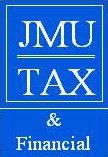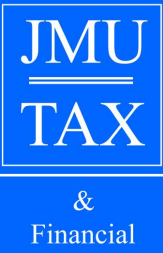-
Q. What is adjusted gross income?
Your adjusted gross income (AGI) is your gross income reduced by deductions other than itemized deductions, the standard deduction, and personal exemptions. Deductions used to arrive at your AGI include business expenses, IRA contributions, student loan interest expense, alimony paid, and job-related moving expenses.
Your AGI determines whether you are eligible for more than two dozen tax benefits, such as tax credits, itemized deductions, and exemptions. As your AGI increases, the maximum amount you can claim for certain deductions and credits decreases. For example, your IRA contribution will not be deductible if you are covered under your employer's pension plan and your adjusted gross income exceeds certain limits.
-
Q. After I filed my tax return, I discovered an error. How do I fix it?
Oversights and errors are not uncommon, so the IRS provides a way for you to correct them. You can correct your return for up to three years after you file your original return by filing an "amended" return with the IRS.
You need to tell the IRS why you are correcting the return, and include the appropriate documentation with your amended return.
If you've discovered income or deductions that you should have reported on your income tax return, give us a call. We can help you set the record straight and pay only the tax actually due.
-
Q. What determines whether my return will be audited?
The IRS uses various programs and techniques to determine which returns are audited, including:
Matching programs. Information returns (such as Forms W-2 and 1099) are matched to your tax returns, using your social security and other identifying numbers. Discrepancies usually generate an IRS notice requesting you to explain the differences. Unclear or evasive answers can generate a tax assessment, or you may be summoned to the local IRS office to explain the differences to an auditor.
Statistical analysis. The IRS uses computer software to analyze hundreds of variables to arrive at ratings (called DIF scores) for tax returns. The program compares actual returns filed to "typical" taxpayer profiles. Unusual features, such as higher than average deductions, result in higher DIF scores, which increase the likelihood of an audit.
Occupation. According to the IRS, returns filed by certain taxpayers, such as self-employed individuals and farmers, understate taxable income at a higher than average rate. Therefore, higher percentages of these returns are audited.
You can reduce your chances of being audited by filing an accurately prepared return with appropriate supporting documentation.
-
Q. I made a loan to a relative that will never be repaid. Can I take a deduction for this bad debt on my tax return?
Your loss might qualify as a nonbusiness (personal) bad debt deduction.
You can take a tax deduction for a nonbusiness bad debt only in the year it becomes worthless and only as a short-term capital loss. In addition, you must be able to prove that a bona fide debt existed and that you've made efforts to collect the debt.
-
Q. Is bond interest taxable?
That depends on the type of bond. For example:
Corporate bond interest is taxable.
Municipal bond interest is generally not subject to federal income tax.
Treasury bond interest is free from state and local income taxes.
Savings bond interest may or may not be taxable depending on the issue and what you use the bond interest for. For example, the interest on certain Series EE and Series I bonds is nontaxable if it is used for qualified education expenses.
-
Q. What is a capital gain?
A capital gain is what results when you sell certain property at a profit. In general, everything you own for personal or investment purposes is a capital asset, including your home, stocks, bonds, and collectibles. Capital assets do not include business property, such as inventories, notes, and accounts receivable.
Long-term capital gains (generally gains on assets held more than one year) receive more favorable tax treatment than ordinary income. For example, the maximum long-term capital gain rate is currently 15%, whereas the maximum ordinary income tax rate is much higher.
-
Q. I pay someone to care for my child while I work? Can I deduct this expense?
No, but you may be able to claim a tax credit, which is more valuable than a tax deduction because it reduces your tax liability dollar for dollar.
You can take the child care credit if you pay someone to care for your child who is under the age of 13, or for a child or other dependent (any age) who is physically or mentally incapable of caring for themselves. You must have earned income in order to claim the credit, and you must need the child care to allow you to work.
The maximum credit is 35%. Eligible expenses are $3,000 for one child and $6,000 for two or more children.
-
Q. What is the earned income credit?
The earned income tax credit (EITC) is a refundable tax credit available to working low-income individuals and families. Eligible taxpayers can get a refund check even it they owe no taxes.
Low-income workers have two options for receiving the EITC. They can file a tax return with a schedule EIC at the end of the tax year, or they can apply to receive a portion of the credit in their paychecks throughout the year. To claim the credit in advance, you must complete IRS Form W-5 and give it to your employer.
The amount of the credit depends on an individual’s income (both taxable and nontaxable) and the number of qualifying children. Taxpayers must have earned income (wages, salary, tips, self-employment income, etc.) to qualify for the credit, but if their total earned income is too great, they cannot claim the EITC.
-
Q. What are education tax credits?
There are two education-related tax credits that can be claimed to reduce your income tax liability dollar for dollar.
The Hope scholarship credit can be claimed for tuition and fees during the first two years of post-secondary education. It's worth a maximum of $1,650 in tax savings per student, per year. The student must be enrolled in an accredited school at least half-time during the year.
The lifetime learning credit can be claimed for tuition and fees relating to any year of post-secondary education and for job-related courses as well. The credit is worth a maximum of $2,000 in tax savings per family (rather than per student).
Both the Hope and lifetime learning credits cannot be claimed for the same student in a given year. Also, the credits cannot be claimed for the same expenses for which another tax benefit is also received.
-
Q. What if I can't file my return on time?
April 15* is the tax filing deadline for most individual income tax returns. If you can't complete your tax return by then, file Form 4868 with the IRS to give yourself up to six additional months to complete your return.
Caution: Form 4868 only extends your filing deadline; it does not extend your tax payment deadline. If your tax is not paid in full by April 15, you'll face interest and penalties on the balance owed.
* When April 15 falls on a Sunday or legal holiday, the deadline for filing is moved to the next business day.
-
Q. Does my child have to file a tax return?
If you or someone else claims your child as a dependent, your child will need to file a 2007 return if he or she has:
- Earned income from wages of more than $5,350.
- Earned net income from self-employment (from a paper route, for example) of $400 or more.
- Investment income only (such as interest and dividends) of more than $850.
- Both earned and investment income totaling more than the larger of: (a) $850 or (b) $300 plus earned income, not to exceed $5,350.
If no one claims your child as a dependent, your child has the same filing requirements as any other taxpayer.
-
Q. Can I deduct a home office?
If you run a business from home, you may be entitled to a home office deduction. Your business space doesn't have to take up an entire room, but you have to use that space exclusively for business purposes.
You must also meet at least one of the following conditions:
- Your home must be your “principal place of business." In other words, it's the only place you have to conduct administrative and management activities, such as billing customers, keeping the books, setting up appointments, or placing orders.
- You use the space to meet with your customers, clients, or patients.
- You use a space in a separate structure not attached to your home; for example, a detached garage.
- You use the space to store inventory or product samples, and your home is the only fixed location of your business. For example, you are an outside salesman, and you store product samples in your basement.
- You use the space as a licensed day-care facility.
Caution: Taking the home office deduction will limit the tax-free gain on the future sale of your home.
-
Q. Is the sale of my residence taxable?
That depends on the amount of profit from the sale. Single taxpayers can exclude from tax up to $250,000 of profit on a home sale and married couples can exclude up to $500,000. To take the full exclusion, you must generally have owned and used the home as your principal residence at least two of the five years prior to its sale. Also, you can't use the exclusion more than once every two years. A reduced exclusion may apply in some cases. Call us for details.
$50 off Tax preparation fee at over $200 (new clients only)
*bring screenshot on your phone
Click Here for Directions

